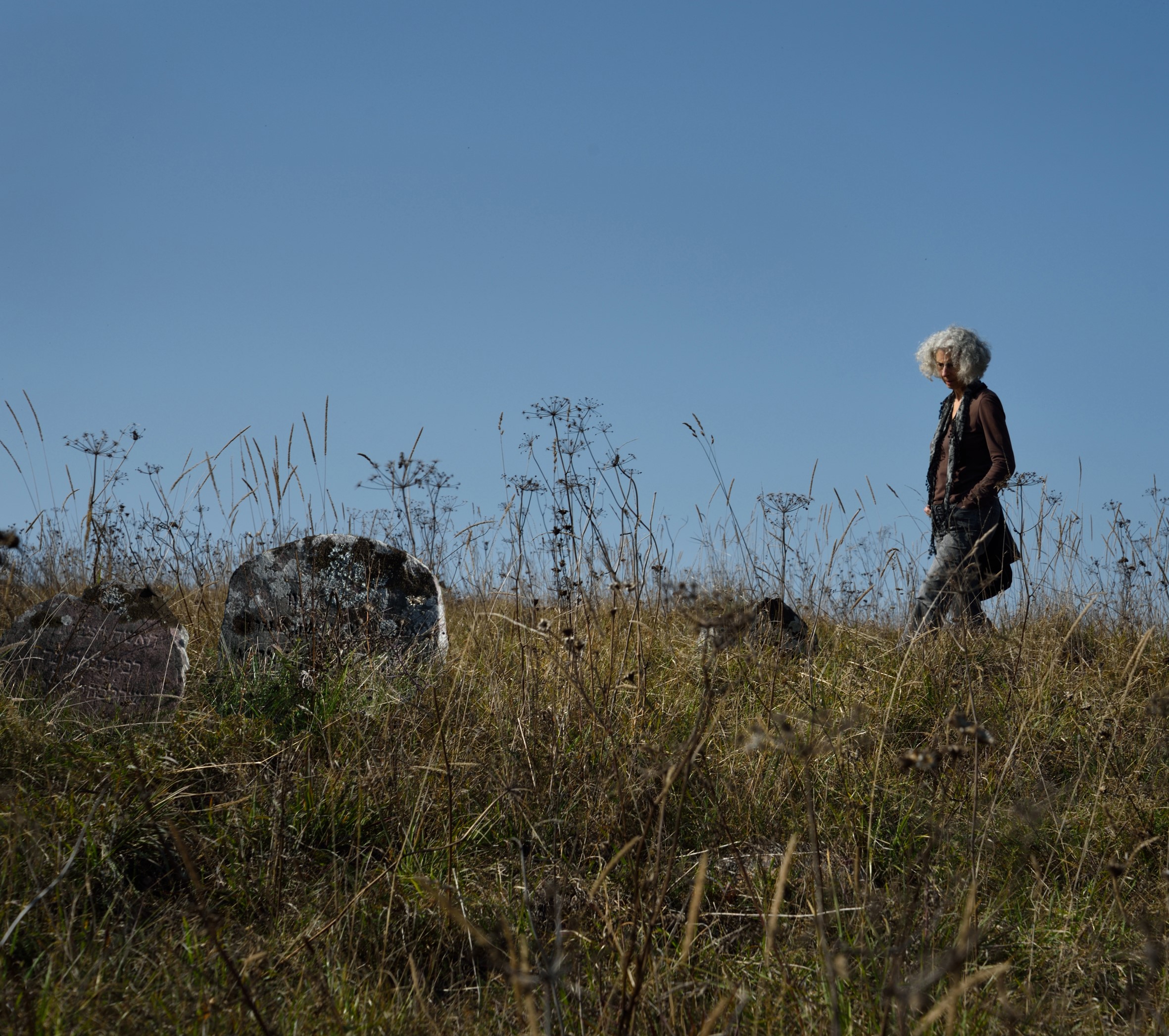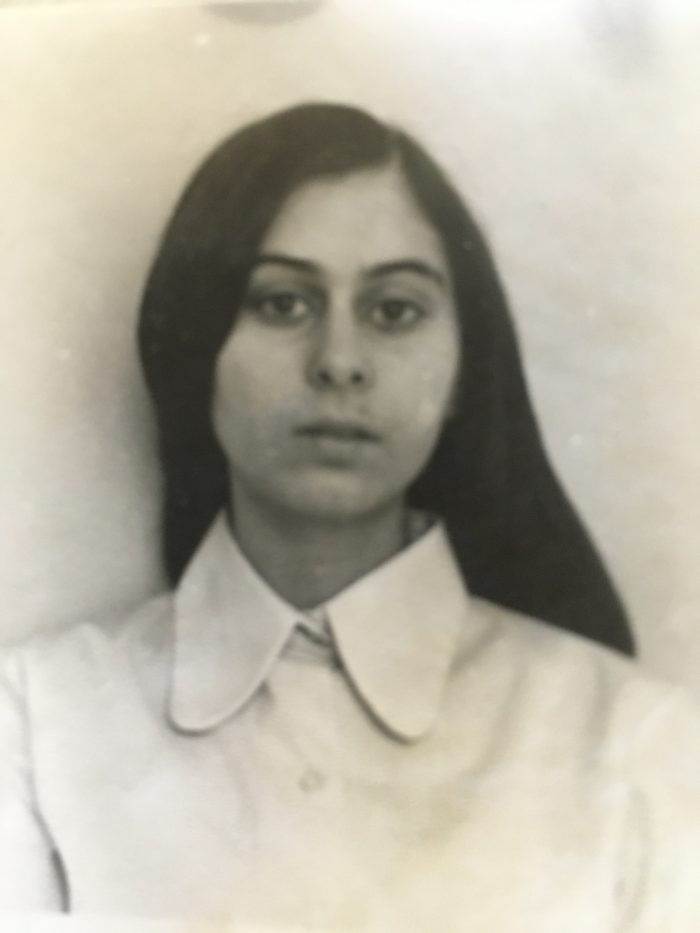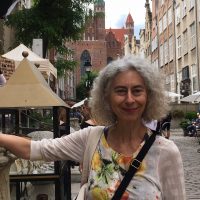Get the full book “Buried Rivers: A Spiritual Journey into the Holocaust” here. ~ Ed.
I met my Buddhist teacher, Trungpa Rinpoche, a few days before my 19th birthday, exactly 48 years ago.
The fact that I had been born into a Jewish family and was the daughter of Polish-born Holocaust survivors seemed inconsequential at the time. All I knew was that Rinpoche understood suffering, and therefore I knew he could help me.
By suffering, I don’t mean gross suffering, such as being in a car wreck, or having cancer, or losing your cat or your best friend. I’m referring to a more nebulous type of suffering that Trungpa Rinpoche sometimes called “basic anxiety”—that inner sense of uncertainty and restlessness that comes from nowhere in particular, and keeps us from relaxing with ourselves and from being fully engaged in the present moment.
In my case, I think I also carried imprints of my parents’ experiences, which were even more nebulous because those experiences hadn’t happened to me. But, somehow they’d been transmitted nonetheless.
Nowadays, we call this the generational transmission of trauma. Whatever you call it, I have lived with aspects of this nebulous and permeable reality all my life. For example, when I was four or five years old, my parents would occasionally go out on a Saturday night with their friends, other Jewish immigrants like themselves. For some reason, this filled me with dread. I was sure they would be killed and never come home.
I remember standing outside the door of my parents’ bedroom, watching my mom arranging her hair and lipstick in front of the mirror, watching her smile as she got ready for the evening ahead. To me, she was drifting further and further away.
Something unnamable would cause my limbs to stiffen to try to stave off the feeling that crashed in and around me. Terror would land inside my hollow gut. Feeling more and more like a ghost, my body had frozen, but I kept watching as she slipped on her dress. When she stood and reached for her coat, the coffin closed shut. I was lost in total darkness now. It was final—I was certain my parents were never coming home. After they left, overwhelming nausea took over, and I would throw up.
For two or three years, this experience repeated like a terrible recurring dream I couldn’t shake. There was no apparent reason or logic; it simply was. I don’t know whether the babysitter ever noticed. In the morning, life somehow returned to normal, and my fits of terror, if they were noticed, were never mentioned.
In terms of Holocaust memory, the years of my childhood—the 50s and 60s—were sometimes called decades of amnesia. The past was on one side of the ocean, and we were on the other. My parents had a new life to construct, brick by brick. To look back would serve no purpose.
For them, it was choiceless. But for me, that terrible darkness of the past was always nearby. A sense of aloneness and a heightened awareness of death seemed to haunt my existence.
When I met Rinpoche, years later, I wasn’t having panic attacks or fits of terror. I just felt different from everyone around me, and extremely alone because of it. There was a quality of suffering that I simply knew in my bones. And in my first meeting with Rinpoche, I saw that he deeply understood it, and he understood me.
A few years later, in the late 70s, Trungpa Rinpoche introduced the term “basic goodness” to me. Frankly, it was easier for me to accept suffering as the foundation of the Buddha’s teachings, the first of the Four Noble Truths, than it was to accept “basic goodness.”
The challenge of basic goodness was that it implied that suffering, violence, and every type of imbalance, injustice, or harm could all take place within a totality that remained basically healthy and trustworthy—as if the universe had an inherent quality of intelligence and balance that could never be completely destroyed, as if everything mattered.
I understood the concept, and by the mid-80s, I was even teaching it. But feeling the truth of basic goodness as an ongoing experience and being constantly cheerful did not come easily.
Twenty years later, in January 2005, I happened to be on a train in Germany. Outside, I noticed an abundance of chain link fences topped with barbed wire. Here and there, a chimney churned out smoke a darker grey than the sky. I sensed a vague heaviness in the atmosphere above me, like a huge swarm of insects.
As I paid more attention to it, it became more real and palpable, and I grew even more curious. Soon I sensed that this was a collection of leftover pain and heaviness from the Holocaust. Since I was in Germany, that made sense to me.
I must have grown restless because my mind wandered for a moment, and then I felt a shudder pass through my sternum, like a feather brushing through the tissue and ribs. With it came a putrid sensation, like the smell of rotting meat. As it touched the inner space beneath my ribs, something in me recoiled and went numb. Within moments my throat felt sore and swollen.
When I got home, still sick and disoriented, I sought out healers to help me recover and also to understand what had happened to me. I was told that many beings who had died in the Holocaust were still in pain and were unable to move on because they couldn’t make peace with what had happened to them.
I was told they were sorry for having made me ill, but that I could help them because of my personal connection to the Holocaust if I could answer this question: how can you still believe in basic goodness?
It made me incredibly happy to think I had the potential to help them. But exactly how was I supposed to go about it?
After nine months, I had an idea to travel to Poland, the place which once had the largest Jewish population in Europe, and therefore, where the majority of Nazi ghettos and killing sites had been located. It was also the place where my parents and generations of ancestors had been born.
I would be reversing decades of amnesia and silence to open myself to the past. How else could I honestly address their question without bearing witness in the place where humanity’s most brutal and systemic slaughter had taken place?
What I couldn’t anticipate was how deeply personal my own journey would be. During my second week in Poland, I was sitting in a café idly wondering, “Had my mother ever been here? Could she have sat at this window?”
The coffee’s vapors tickled my nostrils as I lifted the cup and gazed through the glass. Surely, she had walked down this street. The thought took hold of me as my eyes met the sidewalk. As I imagined her walking on the street in front of me, a sense of her presence stirred in my heart. From the center of my chest, I felt a thrust of energy extend out in front of me like a corridor, filled with overwhelming sensations of love and bliss. Salty tears rolled down my face.
I expected the experience to disappear, but instead, it increased like a flower whose thousand petals were swelling open in accelerated time. The tears wouldn’t stop, and I left before anyone could see my face.
Outside, warm air mixed with the smell of earth and trees, and I breathed them in. The rain of energy continued, loving yet celebratory at the same time as if a joyous reunion was taking place. It seemed as if a crowd of beings who knew me and loved me unconditionally were welcoming me back home—as if they’d been waiting for me.
These weren’t spirits trapped in agony and despair.
If a heaven existed, I couldn’t imagine it being more blissful than this. I just didn’t know who these beings were, why I was receiving such love and support, and what to do with it all. I certainly didn’t think I’d done anything to deserve it.
As I headed back to my hotel, the experience gradually subsided. Perhaps I could stand to take in such intoxicating feelings for only so long. After all, how many moments of pure love does one human get to receive in a lifetime? How many times does one get to know, beyond a doubt, that spirits no longer walking the earth are there, connected to us, and wanting to help us?
For now, this was enough—more than enough.

More than a dozen years later, I’m still traveling to Poland, partly because of that outpouring of love and support that first greeted me and that continues to bless my journey, despite all the ups and downs. I’ve become clearer about the fact that living within the trust or faith in basic goodness isn’t a function of logic, nor is it a binary yes-no operation.
Basic goodness is a moment-to-moment project that asks us to live with an open heart. In that open-heartedness, reality shape-shifts from the painful seesaw of me versus you and us versus them, to a more fluid sense of interconnectedness in which the underlying energy of life surrounds us with its unconditionally nurturing force.
The teachings tell us that everything is born from that space—both pain and pleasure, birth and death. The challenge is how we react to those inevitable daily or even hourly experiences of disappointment, wounding, pain, or hurt—each one of which is like a small death.
Though I may not remain steadily connected to that unconditional space, I know that the possibility of repair and wholeness always remains available. And because I hold this faith and am willing to pass through the hurt into feeling the vulnerability of my tender heart. I know that others who are connected to me may be affected and helped, including even the dead.












Read 1 comment and reply